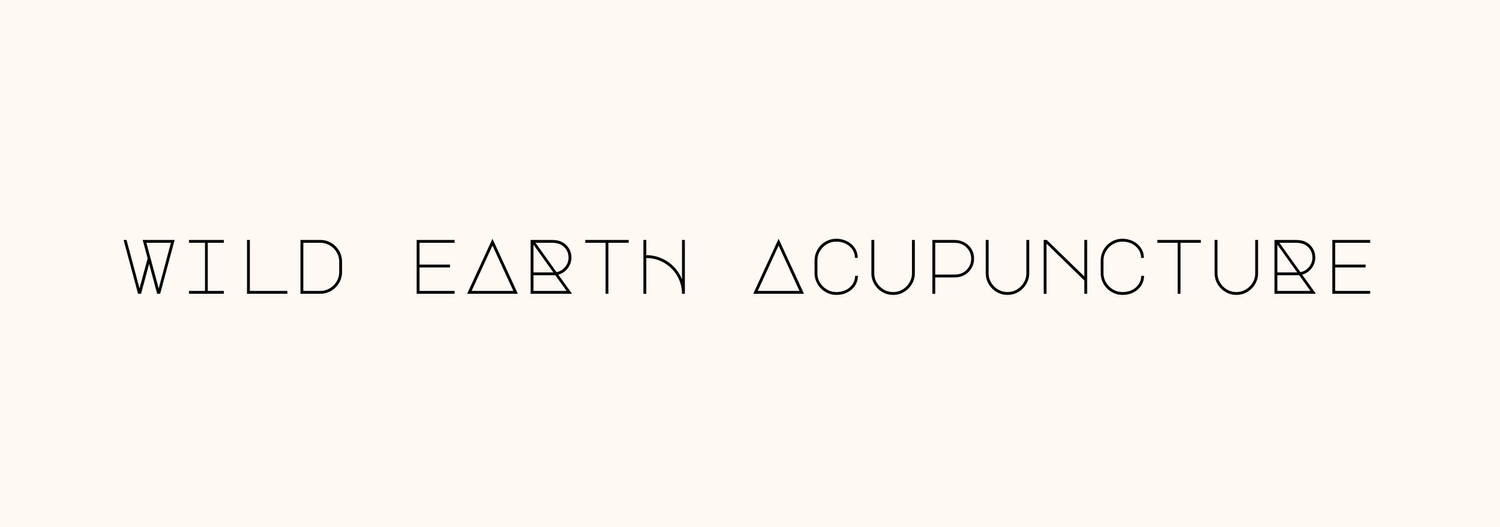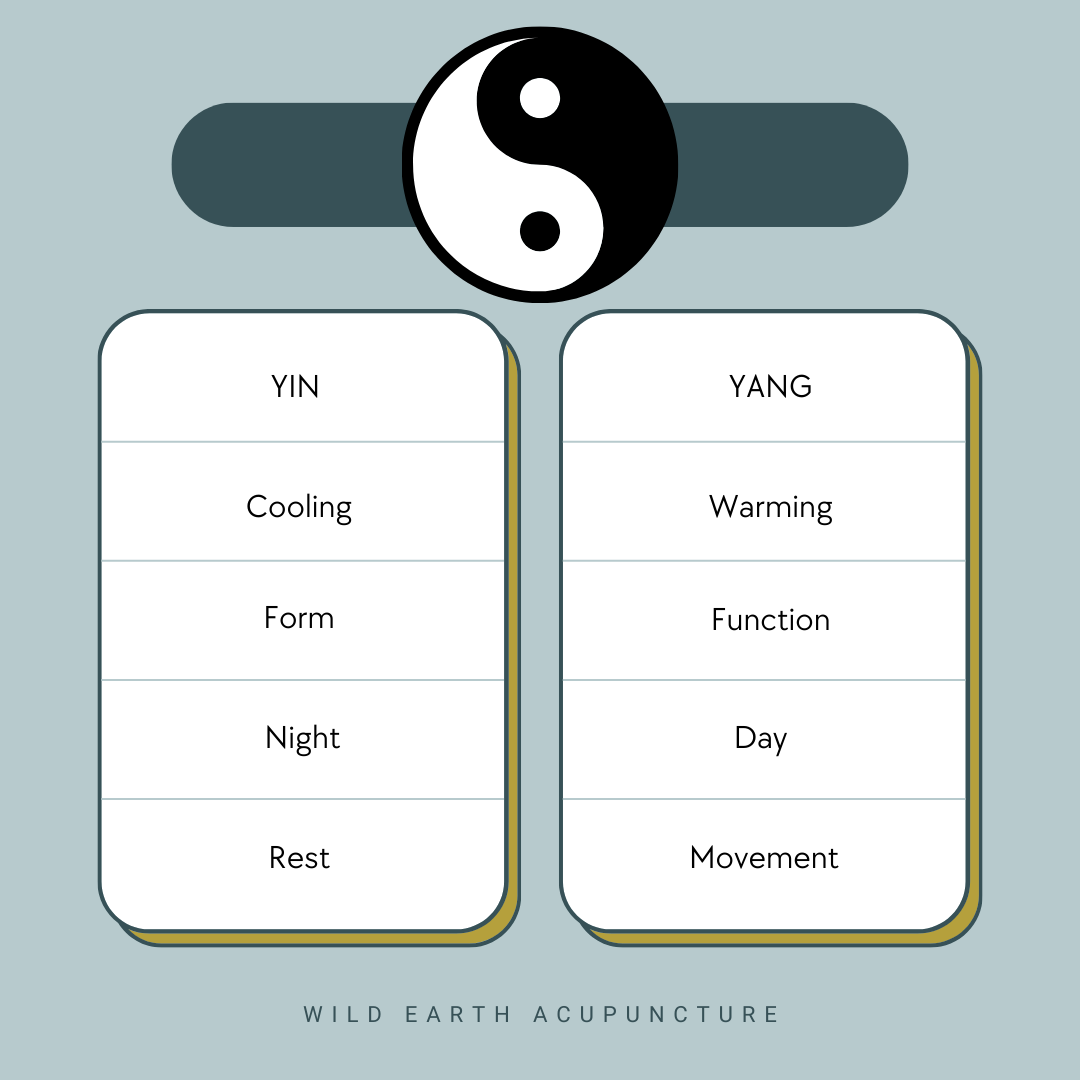Exploring Yin Deficiency; Signs, Symptoms, and Holistic Approaches
Traditional Chinese Medicine (TCM) is founded on the principles of restoring balance and harmony within the body, encapsulated by the dynamic interplay of Yin and Yang energies.
In this holistic approach to health, disruptions in the equilibrium of Yin and Yang are believed to give rise to various syndromes. The focus here is on the pattern of Yin Deficiency, emerging as a pivotal concept in understanding and addressing physiological imbalances especially due to women, aging, and chronic diseases. This pattern, its signs and symptoms, and natural approaches to restoring balance will be explored in detail in this article.
TCM employs principles such as the fundamental theory of Yin and Yang, observation of natural rhythms and their interaction with our physiology, and the intrinsic connection between our bodies and the surrounding world. These principles are utilized to comprehend and observe patterns related to the functioning of the body, and to formulate strategies for promoting balance and improving overall health.
Practitioners of this intricate system of health use observation of the tongue and pulse, and observe the sights, sounds, and smells of the body to determine these patterns displayed. They listen to the spirit behind aches and pains to treat the whole, mind, body and soul. This medicine evolves with us throughout our lifetimes. As we inevitably age, our body changes, and the intricate balance of our internal environment, also changes. The balance of yin-yang is altered by lifestyle choices, diet, and just plain old getting older.
Main Principles of TCM
Yin and Yang
Observation of Natural Rhythms, Within and Without
Determination of Patterns
This article aims to explore the nuanced intricacies of a common pattern differentiation known as Yin Deficiency, within the framework of TCM. By providing a comprehensive understanding of the signs, symptoms, and holistic approaches to address this imbalance, I seek to contribute to the broader dialogue on integrative and natural healthcare.
We will unravel the distinctive characteristics and signs of Yin Deficiency, explore the diagnostic methods employed in TCM to deal with this condition, and elucidate holistic strategies encompassing herbal remedies, acupuncture, dietary considerations, and lifestyle adjustments.
Foundations of Yin and Yang
In the rich tapestry of Chinese philosophy, Yin and Yang represent the dualistic nature of existence. Yin embodies qualities such as receptivity, stillness, and nourishment, while Yang embodies activity, movement, and transformation. In health, these forces are in constant flux, maintaining equilibrium and supporting the body's vital functions.
Within our body, these forces are ever-changing, and fluctuating to accomplish a dynamic homeostasis essential for health. When we become off balance, fall ill, or are injured, these internal energies are skewed as our body adapts to the changes. Prolonged conditions of excess or deficiency of these core states of being begin to manifest in unwanted signs and symptoms.
just a few examples of yin and yang
Yin Deficiency- Yīn Xū- 阴虚
Yin Deficiency is a common pattern differentiation in TCM, with multiple other more nuanced patterns that can develop from it. Yin Deficiency symptoms arise when there is an insufficient supply of Yin energy to balance the dynamic Yang forces. Yin, often associated with coolness and moisture, becomes depleted, leading to a cascade of symptoms. Deficiency of Yin often involves the consumption of body fluids, with the main cause, other than aging, being overwork. This pattern usually develops slowly and gradually over many years, except for cases of pathological heat as in febrile diseases.
Common manifestations include night sweats, dry mouth and skin, a sensation of heat, and disturbances in sleep patterns, with one of the major clinical manifestations of Yin deficiency being dryness. As Yin provides the substance and foundation for bodily fluids, its deficiency can impact multiple organ systems, giving rise to a range of clinical presentations. Yin deficiency is a general pattern with specific forms such as Kidney Yin Deficiency or Liver Yin Deficiency to be more specific.
This pattern tends to most impact the Heart, Lungs, Kidney, Liver, and Stomach. Yin Deficiency has some general symptoms, but the symptoms vary based on the Organs involved.
Signs and Symptoms of Yin Deficiency
Signs of Yin Deficiency, such as night sweats, dry throat and mouth as well as insomnia, become more obvious during the night because the Yin is the most active at the time.
Night sweats
Dryness- dry mouth, dry skin, dry eyes, dry hair and nails, or vaginal dryness
Heat sensations, especially in areas of the chest, palms of hands, and soles of feet. or temperature misregulation
Insomnia
Restlessness
Thirst, especially in the afternoon
Tounge: Red or normal color without coating or with a thin shiny tongue body
Pulse: Rapid (Shu), Empty (Xu)
Causes of Yin Deficiency
Overwork: Long-term overwork tends to deplete Yin.
Lack of sleep: Lack of sleep consumes Yin.
Chronic diseases: Chronic diseases tend to consume Yin over time.
Excessive sexual activity: Excessive sexual activity consumes Yin, especially within the Kidney.
Diet: Over-eating dry, hot-natured foods deplete Yin.
Over-exercising: Over-exercising consumes Yin.
Emotional stress: Emotional stress can deplete Yin.
Diagnosis in TCM
A deep understanding of the pathology of imbalances between yin and Yang is needed here to determine the correct treatment principle and methods to implement. It is best advised to consult a well-versed practitioner of TCM.
Common herbal formulas used are as follows:
Liu Wei Di Huang Wan
Zuo Gui Wan
Mu Li San
Foods to Nourish Yin
Helping the body heal through diet is essential, as this is the main fuel for healing. This list is by no means exhaustive, just suggestions to get you started.
Grains: Barley, millet
Fruits: apple, apricot, avocado, banana, lemon, lime, mango, mulberry, pear, persimmon, pineapple, pomegranate, watermelon
Vegetables: Alfalfa sprout, artichoke, asparagus, kelp, mung bean sprout, pea, potato, seaweed, string bean, sweet potato, tomato, water chestnut, yam, zucchini
Beans: Adzuki, black beans, black soybean, kidney, lima, mung, tofu
Nuts/Seeds: Sesame seed especially black sesame seed, walnut
Fish: Fish in general but especially clam, crab, cuttlefish, oyster, octopus, sardine
Dairy: cheese, organic chicken egg, duck egg, all in moderation
Meat: Grass-fed beef, duck, pork, rabbit
Herbs/Spices: Marjoram, nettle
Oils/Condiments: Local Honey, malt
Beverages: Full-fat coconut milk
Supplements: American ginseng, royal jelly
In most cases of Yin deficiency, the body lacks moisture and the cooling and nurturing aspects that it needs for balance. The imbalance tends to bring more emphasis on the Yang aspect, bringing the heat from Yang into predominance. Working to bring the body into balance through diet and herbs is essential. Hot, and dry foods should be limited.
Western Medicine Correlation
Often we see this pattern echo into other conditions, from a Western Medical perspective such as;
Menopause with heat flashes
Certain conditions of endometriosis
Summer Heat injuries
Through this exploration, I hope to foster a greater appreciation for the knowledge embedded in TCM and its potential to promote overall well-being.
Lifestyle Adjustments
As with most solutions that reside within natural medicine philosophy, Chinese medicine and otherwise, diet and lifestyle take precedence. Starting with these two avenues sets the body up for success and determines the rest of the course of care needed.
Extra Hydration- To ward off dryness, make sure the body is continually and constantly hydrated. This can look like drinking extra water daily and using electrolyte beverages to help maintain. My favorite is coconut water.
Hydrate from the inside out Keep the skin moisturized with organic natural skin care products.
Look into Chinese Herbal remedies to help bring about more balance.
Give your mind and body a break- You work hard, so make sure to rest hard. Take extra time in nature, and unplug from technology. Getting adequate sleep should not be underrated here. It is amazing to help nourish yin and regulate hormones.
Gentle exercise- Balance more intense workouts with gentle exercises such as swimming, walking, spending time in nature, yin yoga, Tai chi, and Qi gong. Make sure to take the extra time to focus on deep breathing to alleviate stress and activate the parasympathetic nervous system.

